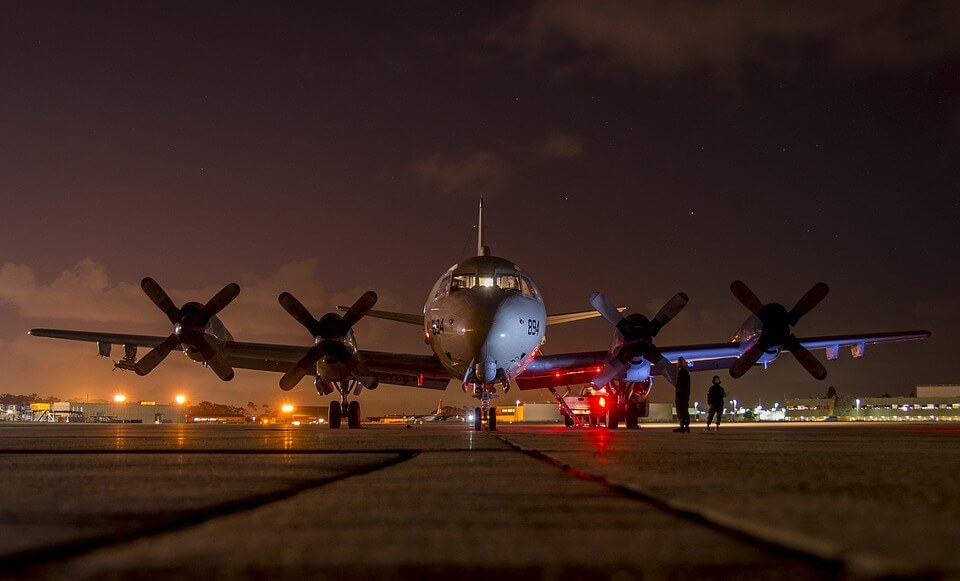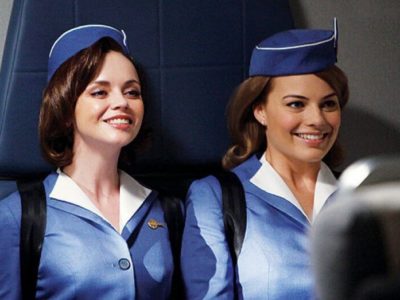When the plane cabin rumbles and you clutch your armrest a little tighter, where do you turn for that reassuring smile? Flight attendants, the secret heroes on airplanes everywhere, always know how to make you feel at ease. They multitask as caregivers, customer service professionals and security agents all at once. Gracious smiles accompany safety demonstrations. Helping hands are always at the ready for help with bulky, overhead luggage. They spread joy with in-flight snacks and always have carry a few corny airplane jokes in their back pocket. Flight attendants get to see the whole world for work. The rest of us only dream of it.
Here’s how to become a flight attendant.

What does a flight attendant do?
- Communicates with captain about weather conditions, safety details and flight specifics such as turbulence or flight duration
- Inspects the aircraft cabin before takeoff
- Assists passengers that require additional help during the boarding process
- Provides friendly greetings and parting salutations before departures and after landings
- Monitors passengers during the flight
- Administers safety demonstrations and brief passengers on emergency protocol
- Ensures the safety and comfort of passengers during a flight
- Distributes beverages and food to passengers
- If necessary, guides passengers to safety during an emergency and administers first-aid
What does it take to become a flight attendant?
Flight attendants need no more than a GED in order to land a job. However, college courses or degrees in hospitality, public relations, communication and tourism can put you ahead of a pile of applicants without that knowledge. Common courses include an online training course at Inflight Institute and the Pan Am International Flight Academy.
Because you’ll deal with passengers all day every day, experience in the customer service field helps you slap on that smile for the occasional rude customer. Employers tend to also lean towards candidates that have a few years of work in the customer service field. Make use of that warm beam that you usually save for cute strangers on the street and the overly-positive attitude that only your old teachers got to see. Little actions and efforts are used by employers as telltale signs to your personality, so practice that just-got-my-braces-off grin.
All flight attendants receive training from their employer once hired. This will earn you a certification from the Federal Aviation Administration (FAA) to become fully eligible to work, so whip out those old note-taking and study habits. Your certificate is waiting for you to go grab it.
What should you know about becoming a flight attendant?
1. What income will I earn as a flight attendant?
According to the Bureau of Labor Statistics, some flight attendants can make as little as 26,0000 However, through experience and seniority, attendants move up the ranks and eventually receive salaries ranging from $25,000 to $55,000 a year, with the highest 10 percent of flight attendants earning more than $79,000 a year.
2. How much will I be expected to work as a flight attendant?
Because of their schedule, flight attendants must remain fiercely independent and extremely flexible. Schedules vary drastically. You never know when a storm will delay your flight back home or an overlay prevents you from reuniting with your family. Know that working on holidays, nights and weekends can be very common, and expect long, grueling shifts.
Weeks split into three days of work with four days off. Shifts range from 12 to 14 hours (with a minimum of nine hours off-time between scheduling), but do extend beyond that for international flights. They take as many as two or three flights a day. According to the BLS, flight attendants, on average, spend anywhere between 75 to 100 hours per week up in the air on flights and on location, and then about 50 hours at their airport base. We recommend having the nanny and plant-sitters on speed dial.
3. What will my work environment be like?
The soft hum of an airplane’s cabin will become the background noise to your life as a flight attendant. Almost all of their work time is spent in the clouds, about 7.5 miles away from the Earth below. When attendants aren’t high above us on land, they work on their base or landing location. The frantic buzz of an airport during rush hour or the soft quiet of hotel floors replace the office cubicle drones that nine-to-fivers face every morning.
Flight attendants also might have to relocate permanently. It’s mandatory. For some, uprooting a life seems like an impossible feat. For others, shoving all your worldly possessions into a suitcase and hopping on the next train to your new base seems like a dream come true. It will be your choice if you wave goodbye to your old home or wave goodbye to a job opportunity.
4. What do I need to know about the future of the flight attendant profession?
The future of flight attendants’ career prospects currently flies high. According to the Bureau of Labor of Statistics, an expected 10 percent growth rate in the next 10 years looks like the future for the field. The need for flight attendants increases steadily because aircrafts keep trying to increase the size of planes to seat more passengers.
Three key skills you need to become a flight attendant

1. Positive attitude
As the thousandth man struggles to get his massive suitcase into the overhead storage unit or impatient passengers demand refills by furiously shaking empty cups at you, you need to plaster on that a “warm” smile. Remember to breathe, smile and remain calm and collected even in the face of noisy babies that anger other passengers. Any customer service position demands positivity and friendliness to all customers. And in the case of planes, rude flight attendants just may go viral. Don’t do anything you wouldn’t want the internet to see.
2. Level head
Flight attendants need to keep their cool. A calm and reassuring character is needed whether one passenger sat in another’s window seat or all the oxygen masks popped out of their compartments, you need to act like it didn’t faze you. Conflict management and great leadership skills come into play during tense situations 20,000 feet above the ground. Flight attendants need nerves of steel and hearts of lions. As the leaders during emergency landings and as the quick-thinkers during passenger squabbles, one this is clear: They are the true heroes of any flight.
3. Safety Consciousness
Flight attendants need an eye for danger and a trustworthy gut. They must know when and how to spot trouble before it manifests into a full-fledged issue. The top priority of every flight attendant is passenger safety. Keep a band-aid holder clipped onto your belt and those CPR skills ready to go. In short: Make sure your mom-voice is well versed.
More skills you need to become a flight attendant include:
● Empathy
● Great communication skills
● Attentiveness
● Teamwork
● Flexibility
● Punctuality
● Quick decision-making skills
● Physical Stamina
Reviews
“Some people don’t know the stress of being on call 24/7 as a flight attendant (reserve). On my working days, I’ll be on call, so it’s tough to navigate making plans with friends or family when I might have to hop on a flight to Mumbai at a moment’s notice. It’s an unpredictable lifestyle.” – Olivia Okoro, Flight Attendant at United Airlines
“Times have changed for flight attendants. People used to come in dressed to the nines. I used to have to wear girdles! Those were the days of pantyhose and miniskirts. I once had to go buy pointy-toed heels for my flight because my square-toed shoes weren’t allowed. Nowadays, people fly in their pajamas. Some things are still the same, though. You have to like people. I had to talk to everyone. Make them feel relaxed. People would be too scared to fly, or on their way to a funeral, leaving an exam, some just got fired from their jobs. You have to sympathize with them. It also takes a toll on your body. Working nights and having an unpredictable schedule can impact you a lot more than you know. I couldn’t get pregnant. When I messed up my knee and had to stay home, that’s when I got pregnant. The wonderful thing about it was that I got to choose where to go. I got to learn and absorb about so many different cultures. I used to haggle with locals to get good deals on things. Once, while flying from Spain to San Juan, I received a love letter from a passenger. The poem ended sadly though, as he mentioned the wedding band on my finger in the closing lines. My husband, Mark, was the flight purser. When we’d land, our airline gave us separate rooms. That made my room the free one. So, it became the party room. We used to use the bidets to chill the alcohol. You don’t miss the flying, but the comraderie. Those were good times.” – Donna Valdes, Former Flight Attendant at Pan American World Airways (24 years) and Delta Air Lines (17 years).
“Being a flight attendant is the best experience work ever. You get to know new people. New cultures and they most important is a fun job providing safety to amazing customers. As a flight attendant, we change people’s lives. We have customers flying for different circumstances and with our smile, we can change their mood.” – Stephany Jaquez, Flight Attendant at Delta Air Lines



















